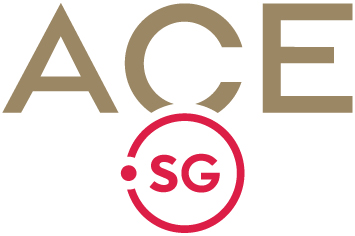CNA: Start-ups struggle to repay loans as interest rates rise, says association representing SMEs
Trade associations say half of their members are experiencing stress in servicing their debt, while not getting the same kind of funding that they used to.

SINGAPORE: As interest rates continue to climb, smaller firms are feeling the squeeze and struggling to repay loans, with some facing the prospect of winding up.
Trade associations say half of their members are experiencing stress in servicing their debt, while not getting the same kind of funding that they used to.
Small- and medium-size enterprises (SMEs) and start-ups are often more vulnerable in a high-interest rate environment, which affects their cash flow and investment decisions, said experts.
Since the COVID-19 pandemic – when borrowing costs were low, interest rates have surged to a range of between four and 13 per cent on the back of inflationary pressures and in tandem with hikes by the United States Federal Reserve.
Paying off loans
One firm feeling the heat is local start-up Igloo, which specialises in keyless smart digital locks for homes and businesses.
The company took up two loans during the COVID-19 pandemic to keep afloat, but it now has a new problem – paying them off.
“We are lucky that we are able to pay back one of our loans and we are nearly done with it,” said the firm’s CEO Anthony Chow.
“But for the other one, we needed to refinance it and put in higher interest rates so that we can get our shareholders' support to extend its maturity date.”
The firm extended for about two years as it is expanding its operations and needs capital.
Venture Capitalists less risk appetite
Start-ups typically need credit to survive, and one way is through funding by venture capitalists (VC).
But at a time when recessionary bells are ringing, VCs are not keen on taking on more risks by investing in companies that lack clear signs of revenue growth.
“There's quite a fair bit of uncertainty in terms of the macro environment landscape, rising interest rates, recessionary pressure, etc.,” said Mr Patrick Lim, CEO of Action Community for Entrepreneurship, a trade association representing local start-ups.
“As a risky asset, we have seen that the volume and number of deals have shrunk on a year-on-year basis,” he added.
“In fact, based on various industry studies, we have seen a more than 50 per cent drop in total deals done for the first half of the year, compared with the same period last year.”
Certain industries harder hit
One sector that has been hit particularly hard is education technology, said observers.
On top of having to grapple with higher rates, it is seeing a drop in demand when compared with during the pandemic, when home-based learning became a norm.
Capital or resource-intensive industries will likely face the most pressures as they require the heaviest debt financing, said Mr Jeff Ng, director of Asia Macro Strategy at Sumitomo Mitsui Banking Corporation (SMBC) Asia Pacific. This includes real estate and other investment-related sectors.
However, this could work in favour for other sectors such as financial services.
“As usual, whenever there's some trend, there's always some that benefit and some that suffer,” Mr Ng said. “But overall, higher interest rates could cause economic growth to remain below trend for the time being.”
Experts warned that companies running out of funds will also impact the supply chain, their business partners and employees.
“This is a chain effect, or contagion, which could also cause many other companies and staff to be affected. This in turn can affect consumption and lead to an overall economic downturn,” Mr Ng told CNA’s Singapore Tonight on Wednesday (Oct 18).
Keeping up with trends
The trade association said entrepreneurs need to react to trends more quickly to convince investors of their relevance.
To help firms pivot, it is doubling down on mentoring efforts to aid them in preserving cash and seeking opportunities to grow their businesses in markets overseas.
“At our end, we see how we can continue to support the start-ups and see how they can review their business model, look at their cost structure and tide over this difficult period,” said Mr Lim.
For Igloo, it is dealing with the cash crunch by reducing overheads, including cutting office space, consolidating warehouses, and stretching every dollar.
The firm hopes restructuring supply chains will help it pull through this difficult period, and get it back on track to reach full-year profitability.
“As we think about our growth forward in 2024 and 2025, we want to avoid taking loans as much as we can,” said Mr Chow.
“It’s important for us to get into a self-sustaining mode, get into cash flow positive, get into profitability, so that as an organisation, we are in control of our own destiny.”
Positive outlook next year
Mr Lim said local start-ups can still thrive, as much of the funds currently channelled into Southeast Asia come to Singapore, which means local firms can flourish better than counterparts in neighbouring markets.
Investors are also more keen to sectors such as fintech, agritech, sustainability and artificial intelligence, he added, encouraging aspiring start-ups to look at emerging trends and technologies.
Industry players believe that while SMEs will have to continue to tighten their belts amid a harsh environment for the following few months, next year’s outlook is more positive.
“Overall, there's likely some continued challenges, as Singapore continues to experience very tough and challenging growth conditions this year. (However), we expect some better conditions next year compared with this year,” said Mr Ng.
